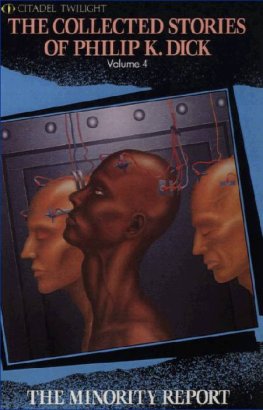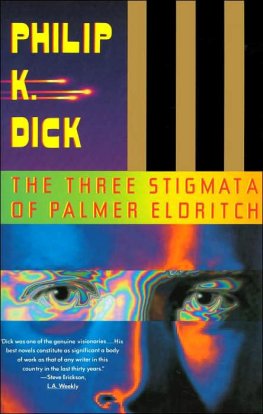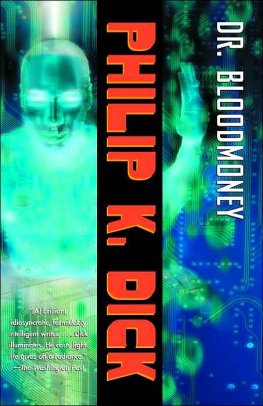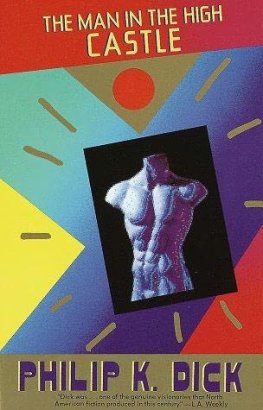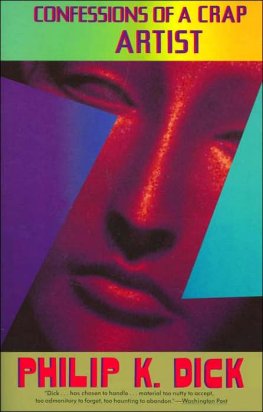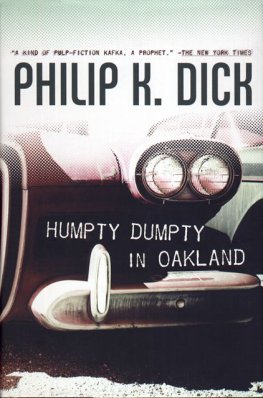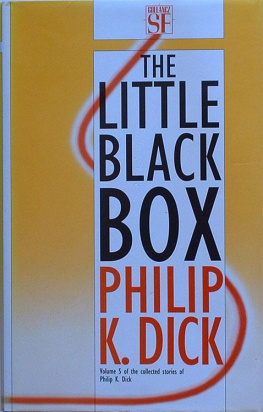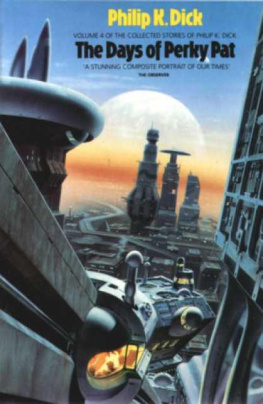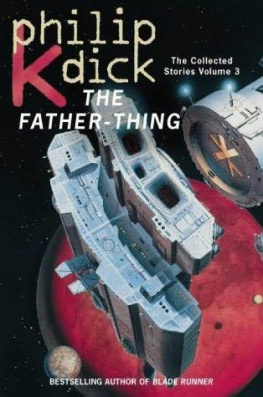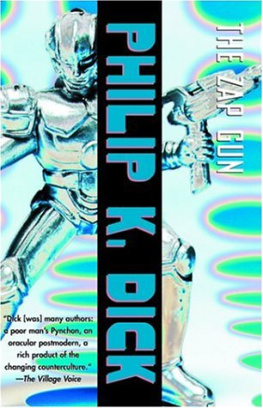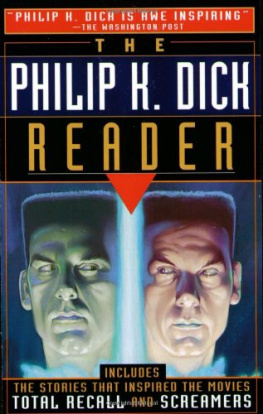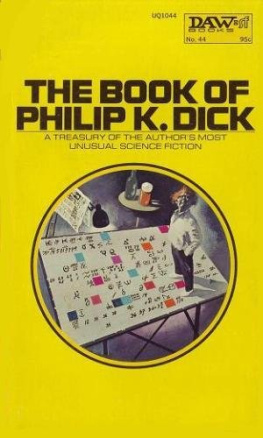Philip Dick - The Crawlers
Here you can read online Philip Dick - The Crawlers full text of the book (entire story) in english for free. Download pdf and epub, get meaning, cover and reviews about this ebook. genre: Science fiction. Description of the work, (preface) as well as reviews are available. Best literature library LitArk.com created for fans of good reading and offers a wide selection of genres:
Romance novel
Science fiction
Adventure
Detective
Science
History
Home and family
Prose
Art
Politics
Computer
Non-fiction
Religion
Business
Children
Humor
Choose a favorite category and find really read worthwhile books. Enjoy immersion in the world of imagination, feel the emotions of the characters or learn something new for yourself, make an fascinating discovery.

- Book:The Crawlers
- Author:
- Genre:
- Rating:5 / 5
- Favourites:Add to favourites
- Your mark:
- 100
- 1
- 2
- 3
- 4
- 5
The Crawlers: summary, description and annotation
We offer to read an annotation, description, summary or preface (depends on what the author of the book "The Crawlers" wrote himself). If you haven't found the necessary information about the book — write in the comments, we will try to find it.
The Crawlers — read online for free the complete book (whole text) full work
Below is the text of the book, divided by pages. System saving the place of the last page read, allows you to conveniently read the book "The Crawlers" online for free, without having to search again every time where you left off. Put a bookmark, and you can go to the page where you finished reading at any time.
Font size:
Interval:
Bookmark:
The Crawlers
By Philip K. Dick
HE built, and the more he built the more he enjoyed building. Hot sunlight filtered down; summer breezes stirred around him as he toiled joyfully. When he ran out of material he paused awhile and rested. His edifice wasn't large; it was more a practice model than the real thing. One part of his brain told him that, and another part thrilled with excitement and pride. It was at least large enough to enter. He crawled down the entrance tunnel and curled up inside in a contented heap.
Through a rent in the roof a few bits of dirt rained down. He oozed binder fluid and reinforced the weak place. In his edifice the air was clean and cool, almost dust- free. He crawled over the inner walls one last time, leaving a quick-drying coat of binder over everything? What else was needed? He was beginning, to feel drowsy; in a moment hed be asleep.
He thought about it, and then he extended a part of himself up through the still-open entrance. That part watched and listened warily, as the rest of him dozed off in a grateful slumber. He was peaceful and content, conscious that from a distance all that was visible was a light mound of dark clay. No one would notice it: no one would guess what lay beneath.
And if they did notice, he had methods of taking care of them.
* * *The farmer halted his ancient Ford truck with a grinding shriek of brakes. He cursed and backed up a few yards. Theres one. Hop down and take a look at it. Watch the carsthey go pretty fast along here.
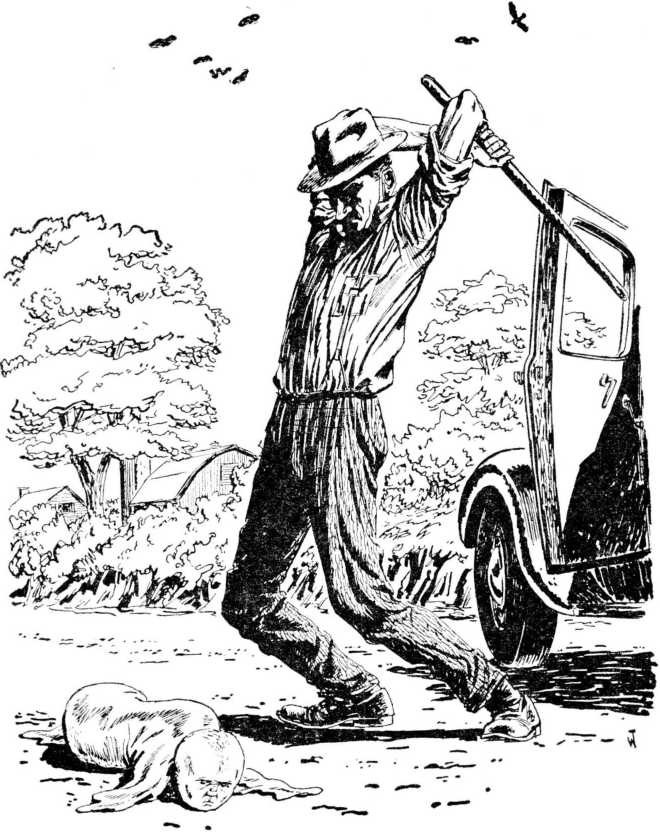
Ernest Gretry pushed the cabin door open and stepped down gingerly onto the hot mid-morning pavement. The air smelled of sun and drying grass. Insects buzzed around him as he advanced cautiously up the highway, hands in his trouser pockets, lean body bent forward. He stopped and peered down.
The thing was well mashed. Wheel marks crossed it in four places and its internal organs had ruptured and burst through. The whole thing was snail-like, a gummy elongated tube with sense organs at one end and a confusing mass of protoplasmic extensions at the other.
What got him most was the face. For a time he couldnt look directly at it: he had to contemplate the road, the hills, the big cedar trees, anything else. There was something in the little dead eyes, a glint that was rapidly fading. They werent the lustreless eyes of a fish, stupid and vacant. The life he had seen haunted him, and he had got only a brief glimpse, as the truck bore down on it and crushed it flat.
They crawl across here every once in awhile, the farmer said quietly. Sometimes they get as far as town. The first one I saw was heading down the middle of
Grant Street, about fifty yards an hour. They go pretty slow. Some of the teen-age kids like to run them down. Personally I avoid them, if I see them.
Gretry kicked aimlessly at the thing. He wondered vaguely how many more there were in the bushes and hills. He could see farmhouses set back from the road, white gleaming squares in the hot Tennessee sun. Horses and sleeping cattle. Dirty chickens scratching. A sleepy, peaceful countryside, basking in the late-summer sun.
Wheres the radiation lab from here? he asked.
The farmer indicated. Over there, on the other side of those hills. You want to collect the remains? They have one down at the Standard Oil Station in a big tank. Dead, of course. They filled the tank with kerosene to try to preserve it. That ones in pretty good shape, compared to this. Joe Jackson cracked its head with a two-by-four. He found it crawling across his property one night.
Gretry got shakily back into the truck. His stomach turned over and he had to take some long deep breaths. I didnt realize there were so many. When they sent me out from Washington they just said a few had been seen.
Theres been quite a lot. The farmer started up the truck and carefully skirted the remains on the pavement. Were trying to get used to them, but we cant. Its not nice stuff. A lot of people are moving away. You can feel it in the air, a sort of heaviness. Weve got this problem and we have to meet it. He increased speed, leathery hands tight around the wheel. It seems like theres more of them, born all the time, and almost no normal children.
BACK in town, Gretry called Freeman lone distance from the booth in the shabby hotel lobby. Well have to do something. Theyre all around here. Im going out at three to see a colony of them. The fellow who runs the taxi stand knows where they are. He says there must be eleven or twelve of them together.
How do the people around there feel?
How the hell do you expect? They think its God's Judgment. Maybe theyre right.
We should have made them move earlier. We should have cleaned out the whole area for miles around. Then we wouldnt have this problem. Freeman paused. What do you suggest? That island we took over for the A-bomb tests.
Its a damn big island. There was a whole group of natives we moved off and resettled. Freeman choked. Good God, are there that many of them?
The staunch citizens exaggerate, of course. But I get the impression there must be at least a hundred.
Freeman was silent a long time. I didnt realize, he said finally. Ill have to put it through channels, of course. We were going to make further tests on that island. But I see your point.
Id like it, Gretry said. This is a bad business. We cant have things like this. People cant live with this sort of thing. You ought to drop out here and take a look. Its something to remember.
Illsee what I can do. Ill talk to Gordon. Give me a ring tomorrow.
Gretry hung up and wandered out of the drab, dirty lobby onto the blazing sidewalk. Dingy stores and parked cars. A few old men hunched over on steps and sagging cane-bottom chairs. He lit a cigarette and shakily examined his watch. It was almost .three. He moved slowly toward the taxi stand.
The town was dead. Nothing stirred. Only the motionless old men in their chairs and the out-oftown cars zipping along the highway. Dust and silence lay over everything. Age, like a gray spider web, covered all the houses and stores. No laughter. No sounds of any kind.
No children playing games.
A dirty blue taxicab pulled up silently beside him. Okay, mister, the driver said, a rat-faced man in his thirties, tooth pick hanging between his crooked teeth. He kicked the bent door open. Here we go.
How far is it? Gretry asked, as he climbed in.
Just outside town. The cab picked up speed and hurtled noisily along, bouncing and bucking. You from the FBI?
No.
I thought from your suit and hat you was. The driver eyed him curiously. Howd you hear about the crawlers?
From the radiation lab. Yeah, its that hot stuff they got there. The driver turned off the highway and onto a dirt side- road. Its up here on the Higgins farm. The crazy damn things picked the bottom of old lady Higgins place to build their houses. Houses?
Theyve got some sort of city, down under the ground. Youll see itthe entrances, at least. They work together, building and fussing. He twisted the cab off the dirt road, between two huge cedars, over a bumpy field, and finally brought it to rest at the edge of a rocky gully. This is it.
It was the first time Gretry had seen one alive.
He got out of the cab awkwardly, his legs numb and unresponding. The things were moving slowly between the woods and the en- trace tunnels in the center of the clearing. They were bringing building material, clay and weeds. Smearing it with some kind of ooze and plastering it in rough forms which were carefully carried beneath the gound. The crawlers were two or three feet long; some were older than others, darker and heavier. All of them moved with agonizing slowness, a silent flowing motion across the sun-baked ground. They were soft, shelless, and looked harmless.
Font size:
Interval:
Bookmark:
Similar books «The Crawlers»
Look at similar books to The Crawlers. We have selected literature similar in name and meaning in the hope of providing readers with more options to find new, interesting, not yet read works.
Discussion, reviews of the book The Crawlers and just readers' own opinions. Leave your comments, write what you think about the work, its meaning or the main characters. Specify what exactly you liked and what you didn't like, and why you think so.

